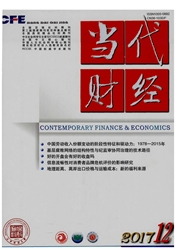

 中文摘要:
中文摘要:
近年,商业丑闻频频发生,引发了学界对领导正直问题的关注,但学术界对领导正直的结构、测量及前因与后果的研究尚处起步阶段。本研究首先借鉴管理学通用的量表开发程序,探讨中国组织情境下领导正直的结构维度,开发中国组织情境下领导正直的测量量表;然后,采用追踪研究设计,收集上下属配对数据,探索领导正直的前因与结果。具体包括3个研究:(1)中国组织情境下领导正直的结构与测量研究;(2)领导正直的前因:基于特质与学习视角的跨层次的追踪研究;(3)领导正直的结果:一项追踪研究。该项目研究结果的主要价值在于:(1)确立中国组织情境下领导正直的维度结构,识别与测量中国组织情境下的领导正直;(2)确认哪种特质的领导可能正直,以及高层领导正直是否对低层领导正直有传递效应;(3)揭示领导正直如何通过提升个人声誉,继而加强个人权力及职业发展,以及如何通过下属对主管的信任,最终增加员工的工作绩效和建言行为。
 英文摘要:
英文摘要:
In recent years, business scandals occur frequently, which cause researchers concern on the issues of leader integrity in the academic area, but research on the structure, measurement, antecedents and consequences of leader integrity is still scarce. In this study, we explore the dimensions of leader integrity and develop a scale of leader integrity with a common management program of scale development in Chinese organizational context. Then, we explore the antecedents and consequences of leader integrity by collecting supervisor-subordinate paried data and using longitudinal study design. There are three sub-studies in this research:(1) research on structure and measurement of leader integrity in Chinese organizational context; (2) the antecedents of leader integrity: a cross-level longitudinal research based on individual traits and social learning perspectives; (3) consequences of leader integrity: a longitudinal study. This research is significant in: (1) clarifying the dimensions of leader integrity, recognizing and measuring the leader integrity in Chinese organizational context; (2) confirming what kind of leader will show integrity behavior, and whether the cascading effect of senior leader integrity to low-level leader integrity exists; (3) revealing the relationship among leader integrity and personal reputation, personal power and career development of leader, and the relationship among leader integrity and trust in supervisor, job performance and voice behavior of employee.
 同期刊论文项目
同期刊论文项目
 同项目期刊论文
同项目期刊论文
 期刊信息
期刊信息
